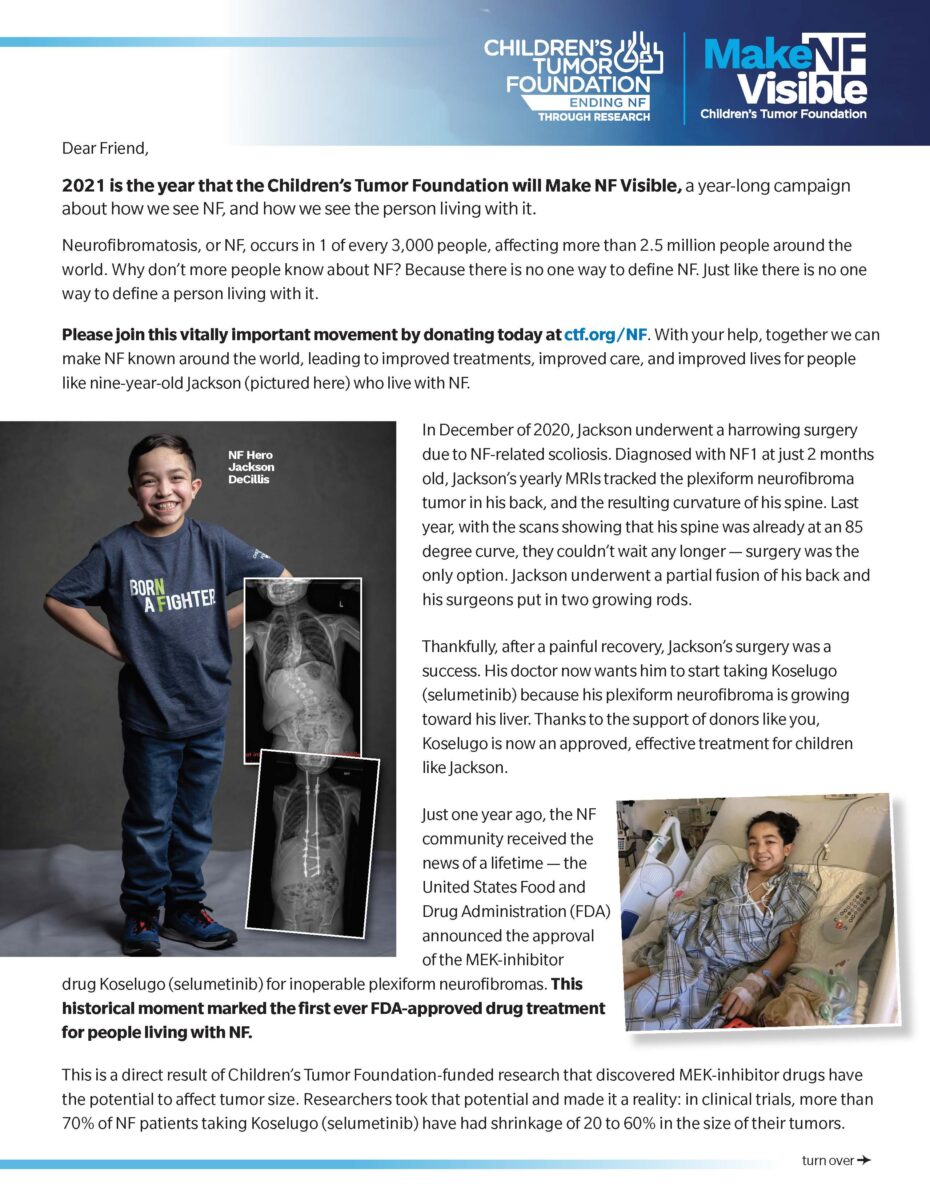In December 2020, Jackson underwent a harrowing surgery due to NF-related scoliosis. Diagnosed with NF1 at just 2 months old, Jackson’s yearly MRIs tracked the plexiform neurofibroma tumor in his back, and the resulting curvature of his spine. Last year, with the scans showing that his spine was already at an 85 degree curve, they couldn’t wait any longer — surgery was the only option. Jackson underwent a partial fusion of his back and his surgeons put in two growing rods. Thankfully, after a painful recovery, Jackson’s surgery was a success. His doctor now wants him to start taking Koselugo (selumetinib) because his plexiform neurofibroma is growing toward his liver.
There is no one way to define NF, just like there is no one way to define a person living with it. Jackson is part of Make NF Visible, a year-long campaign about how we see NF, and how we see the person living with it.
Jackson’s story is one of several that we featured in an appeal to make NF visible and help us continue to fund the type of research that led to Koselugo (selumetinib); as you’ll read below, Koselugo is the first FDA-approved drug treatment for people living with NF. This is a direct result of Children’s Tumor Foundation-funded research that discovered MEK-inhibitor drugs have the potential to affect tumor size. Researchers took that potential and made it a reality: in clinical trials, more than 70% of NF patients taking Koselugo (selumetinib) have had shrinkage of 20 to 60% in the size of their tumors. (Read more at ctf.org/mek.)
(Click here or click the image to keep reading the complete letter.)


